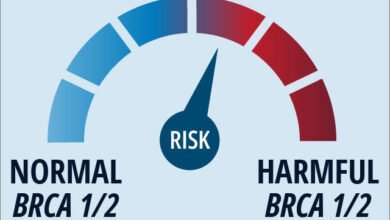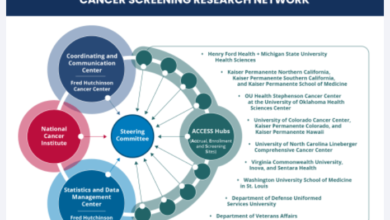The Word: the emotional power to heal or harm?

For some time now, I have been noticing how increasingly important the correct use of language is, within the healthcare sector. You will have seen a spectacular example of that in my recent post, ‘Why Cancer Language Really Matters.’ Interestingly, Neil Bindemann has also been saying similar things, and we have had many stimulating discussions on the subject! Neil has a wonderful educational and scientific background and can write in a way that I can’t. So, I’m delighted to host his very powerful piece, of which I am in total agreement!
It was a few months ago when I received a kind invitation from my friend, Chris Lewis, to write this article. At that point, I certainly didn’t have this title in mind. My initial reaction was, that we run a survey to invite people to share their thoughts on a term, which I will come to. I was keen to do that, because I believed the article should not be solely based on my perspective, which arises out of listening to and learning from my father; Dr Sidney Bindemann, one of the first psychologists to work on a cancer ward, and a founder of the British Psychosocial Oncology Society.
Words had never fascinated me, until a few years into my trauma-informed experience, which began in 2015. The light-bulb moment was when my father, in his early 80s and only a couple of years before he died, found the courage and strength to share his, totally unintentional, childhood trauma. That trauma was I believe, what lead to a lived experience and the development of a skill that touched the hearts of many people, through both his ministry and his psychosocial oncology work. And it all started with the unfortunate misuse of words.
Then, it suddenly dawned on me, my own trauma began when I heard: “Do you mind taking a seat, the doctors are looking at your scans and they need to come and talk to you”. As someone with neuroscience research and education background, since 1993, those words triggered an immediate reaction that meant I urgently required a blanket and sweet cup of tea. It wasn’t until a week later that I returned home from Kings College Hospital, knowing I had a tumour on my pineal gland, and no driver’s licence for a year. The rest is for another day, thankfully, given I’m still here and intend to continue my living experience for quite a few more years to come! So, words, as you may appreciate, have taken on a greater significance, which is partly why
when I started planning this article, I felt compelled to look up definitions of ‘word’. Here’s one that I was particularly struck by:
A single distinct meaningful element of speech or writing, used with others (or sometimes alone) to form a sentence and typically shown with a space on either side when written or printed.
This brings me nicely to why ‘harm’ and ‘heal’ are in the title of this article, and the survey which invited people to select, from a list of words, specific emotions they associate with either “Palliative Care” or “Quality of Life Care”. Before I share some data and observations from the survey, I wish to quicky draw your attention to the fact that both these terms have the word ‘care’ in them. And here are a few definitions of the word ‘care’, found on the internet:
Noun
“Provision of what is necessary for the health, welfare, maintenance, and protection of someone or something.”
“Serious attention or consideration applied to doing something correctly or to avoid damage or risk.”
Verb
“Feel concern or interest; attach importance to something.
Now to the survey, and first some details of the people who completed it: 215 people have completed the survey
Approx. 70% women and 30% men.
Approx. 50:50 split in those who have & haven’t experienced life-altering medical news.
Approx. 84% aged between 35 and 70, the remaining from 18 to 35 and 71+
The next two charts present the most frequently selected emotion words (top 5) that people who experienced life-altering medical news associate with:

Some initial observations and thoughts
The nature of the emotions selected most frequently, by all respondents when presented with the term “Palliative Care” are distinctly different to those most frequently selected when presented with “Quality-of-Life Care.”
The emotions selected when “Palliative Care” is presented are generally regarded as being more negative compared to those selected when Quality-of-Life Care is presented, which are more positive.
“Vulnerable”, “Fearful” and “Helpless” are the top three emotions that people selected when presented with “Palliative Care”.
“Hopeful”, “Helpful” and “Confident” are the top three emotions that people selected when presented with “Quality-of-Life Care.”
People who received life-altering medical news selected the same top 3 negative emotions, when presented with “Palliative Care”, whereas, with Quality-of-Life Care, the top two emotions remain the same but the third most frequently selected emotion changing to “vulnerable”. There is growing evidence, through neuroscience research, that lack of attention to a person’s emotional state, can have a significantly detrimental impact on the success of standard medical and surgical treatment, typically provided to people across the health service.
For me, the survey observations draw attention to something very fundamental; healthcare services seem to be totally unaware of the damaging emotional impact of words used, whether on signs, in letters or spoken by some of the people themselves. I began this article with a title that I hope will draw attention to and raise awareness of the power of a word to contribute to a healing process or one that causes harm and triggers, what we at the Lifestyle Health Foundation call, Acquired Mind Injuries. I wish to finish by offering a new perspective on the word ‘WORD’; it is one that comes from my living experience and has arisen out of listening with my heart to hundreds of people who have experienced trauma. Please, please, please select and use your words
Wisely: in a way that shows experience, knowledge, and good judgement.
Orderly: neatly and methodically arranged.
Reflectively: in a way that shows that you are thinking carefully and quietly; and
Discerningly: showing insight and understanding.
A. resources and contacts:
Person-Centred Neurosciences Society (www.p-cns.org.uk)
Lifestyle Health Foundation (www.lifestylehealth.org.uk)
Community Therapists Network (www.communitytherapy.org.uk)
Twitter: @communityneuro @LifeHealthFdn @commtherapy @nbinders
Instagram: @nbinders @lifestylehealthfoundation
Related
Source link
#Word #emotional #power #heal #harm



